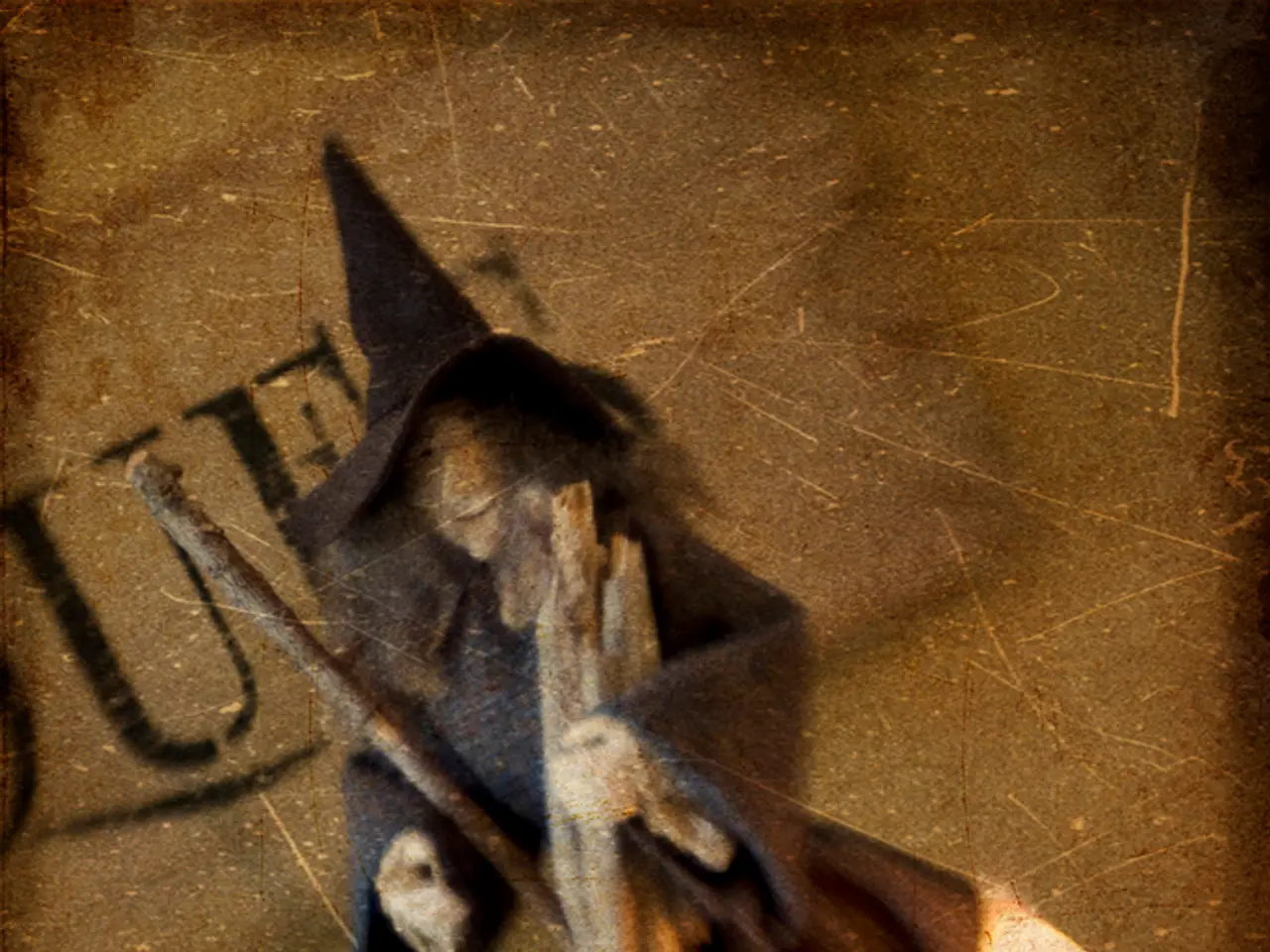Haunted Garden Plants for Halloween: Discover the Floral Choices to Elevate Your Spooky Ambiance
Transform your garden into a spooky haven this Halloween with these unique and captivating plants that project a dark and mysterious ambiance.
Unique Dark and Brooding Plants
- Black Tulips
- The 'Black Hero' Tulip, a favourite among gothic plant enthusiasts, boasts a deep, dark coloration that adds a dramatic touch to any garden.
- Begonias
- With a variety of dark leaf colors, such as black and purple, begonias can add a mysterious touch to your garden.
- Peperomias
- These small, dark-leaved plants are ideal for adding a gothic vibe to indoor or outdoor spaces.
- Tradescantias
- Known for their trailing nature and deep purple hues, these plants are perfect for hanging baskets or containers in a gothic garden.
- Alocasias
- Alocasias, with their dark, glossy leaves, contribute to a spooky, mysterious atmosphere in the garden.
- Black Calla Lilies
- These elegant flowers have a dark, almost black, trumpet-shaped bloom that adds a dramatic touch to any garden.
- Purple and Black Petunias
- Although not naturally black, these flowers can be dyed to create a gothic-inspired look for your garden.
Gothic Garden Ideas
- Halloween Florals
- Incorporate seasonal flowers like marigolds or chrysanthemums in dark colors to enhance the spooky vibe.
- Witchy Flowers
- Use plants with unusual shapes or colors, like bat flowers or black Wichura roses, to create a witchy atmosphere.
- Gothic Home and Garden Decor
- Combine plants with gothic-inspired garden decor, such as black ironwork, stone statues, or mysterious lanterns, to create a cohesive theme.
Tips for Creating a Spooky Garden
- Use Lighting
- Dim or colored lighting can accentuate the dark and mysterious ambiance of your garden.
- Add Decorations
- Incorporate gothic-inspired decorations like cobwebs, skeletons, or witch-themed items to enhance the spooky atmosphere.
- Mix Textures
- Combine smooth, glossy plants with rougher textures like stone or bark to create a visually interesting and eerie landscape.
The following plants are perfect for a gothic garden:
- Akebia longeracemosa is a climbing plant with deep dark red flowers that resemble grapes and have a custard cream scent. It thrives in sun and well-drained soil.
- Salix daphnoides is a fast-growing willow that produces violet-purple wands, suitable for providing witchy foliage.
- Cornus alba 'Kesselringii' has purple-black stems that appear after the dark green leaves fall in autumn, making it dramatic when grown with green and yellow winter stems.
- Anthriscus sylvestris 'Ravenswing' is a great contrast to early performing perennials like tulips and alliums. It thrives in moist but well-drained soil.
- Pennisetum alopecuroides 'Black Beauty' has long, cylindrical plumes with a dark and ghostly feel. It prefers a moist, free-draining soil and performs best in southern English counties in a warm, sheltered position.
- Pennisetum alopecuroides 'Dark Desire' prefers a sunny spot in good soil that doesn't sit wet in winter.
- Tulipa 'Black Hero' has artichoke-like, almost-black flowers and likes well-drained, reasonable garden soil in full sun to part shade.
- Helleborus atrorubens is seldom seen in cultivation, but its purple-black flowers make it perfect for this list.
- The dahlia Black Jack has dark flowers. Its striking dark flowers make it a great addition to any gothic garden.
By combining these unique plants with thoughtful lighting and decor, you can create a truly unique and spooky Gothic Halloween garden.
- Incorporating plants like the Black Hero Tulip, Black Jack Dahlia, and the Helleborus atrorubens in your home-and-garden adds a gothic touch to the landscape.
- To create a more mysterious atmosphere, consider adding plants with unusual shapes or colors, such as Black Tulips, Witchura roses, or Bat flowers.
- For a cohesive gothic garden look, mix textures by planting smooth, glossy plants like Peperomias alongside rougher ones like stone or bark, and complement them with gothic home-and-garden decor.





